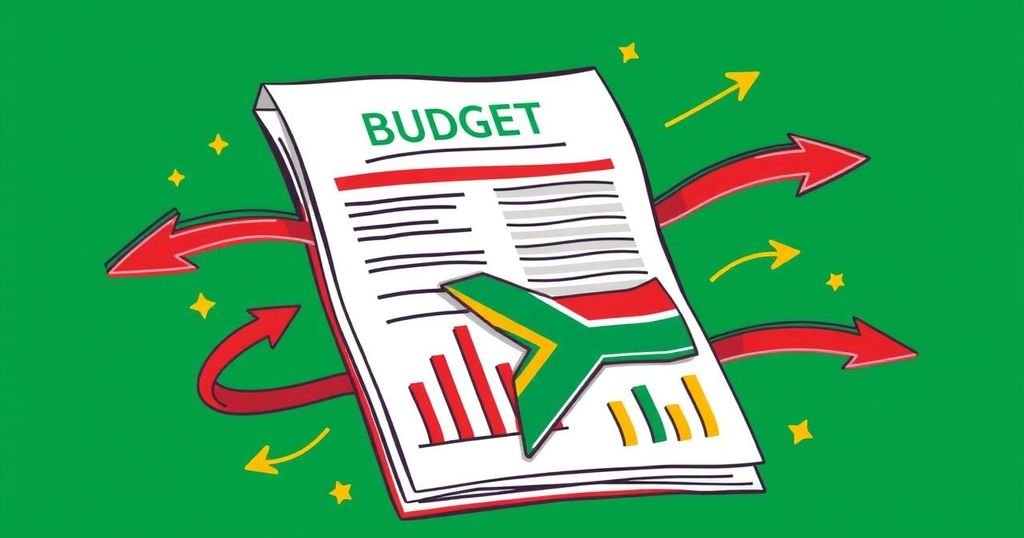South Africa’s Finance Minister Enoch Godongwana revealed a revised budget, proposing a 1% VAT increase. Despite this smaller tax hike, the budget was rejected by the Democratic Alliance, citing concerns over economic growth and job creation. The country is grappling with high unemployment and poverty levels, highlighting the urgency of addressing service delivery and infrastructure needs.
On Wednesday, South Africa’s Finance Minister Enoch Godongwana presented a revised budget proposal that included a lesser increase in value-added tax (VAT) than originally planned. The revised budget suggested a 1% VAT increase, bringing the rate to 16% by the financial year 2026/27. This proposal emerged after the previous budget plan faced significant backlash due to a larger 2% increase that was ultimately withheld.
Despite the reduction in the VAT hike, the budget was met with disapproval from various parliamentarians and key political figures. The Democratic Alliance party, an essential component of South Africa’s unity government, promptly rejected the budget. DA leader John Steenhuisen stated, “We will continue to fight for economic growth and jobs.”
In his presentation, Godongwana indicated that the government would not implement inflation-linked increases to personal income tax brackets, and he noted that the country faced an inflation rate of 3.2% as of January. He stressed that raising corporate or personal income tax rates could adversely affect investment and economic growth, explaining, “VAT is a tax that affects everyone.”
South Africa’s economic situation is precarious, with an unemployment rate exceeding 32% — one of the highest globally and severely impacting the youth. The inequality levels in the nation remain among the highest worldwide, stemming from its history of white-minority rule. Approximately two-thirds of the population is estimated to be living in poverty, according to the World Bank.
The economy experienced meager growth of just 0.6% in 2024, hampered by deteriorating infrastructure and persistent power outages, attributed to past corruption and mismanagement. Godongwana emphasized the necessity for immediate action on service delivery to meet developmental goals, proposing over R1 trillion (NZ$95.1 billion) in spending over three years to improve transportation, energy, and water infrastructure.
Furthermore, provisions were made to enhance the capacity of the tax service to improve revenue collection, addressing the significant amounts reportedly uncollected. The DA criticized the budget, asserting that it would impoverish the people of South Africa and jeopardize the future of the government, announcing it would not support the budget in Parliament, necessary for it to pass.
In summary, South Africa’s revised budget faced immediate criticism, particularly due to a modest increase in VAT and deferred tax strategies. The government’s struggle with unemployment, inequality, and economic stagnation continues to challenge its fiscal policies. The rejection by the Democratic Alliance underlines significant opposition to the budget, calling into question its future viability in Parliament. Addressing the country’s pressing infrastructure and service delivery needs remains paramount in the face of economic adversity.
Original Source: www.nzherald.co.nz




